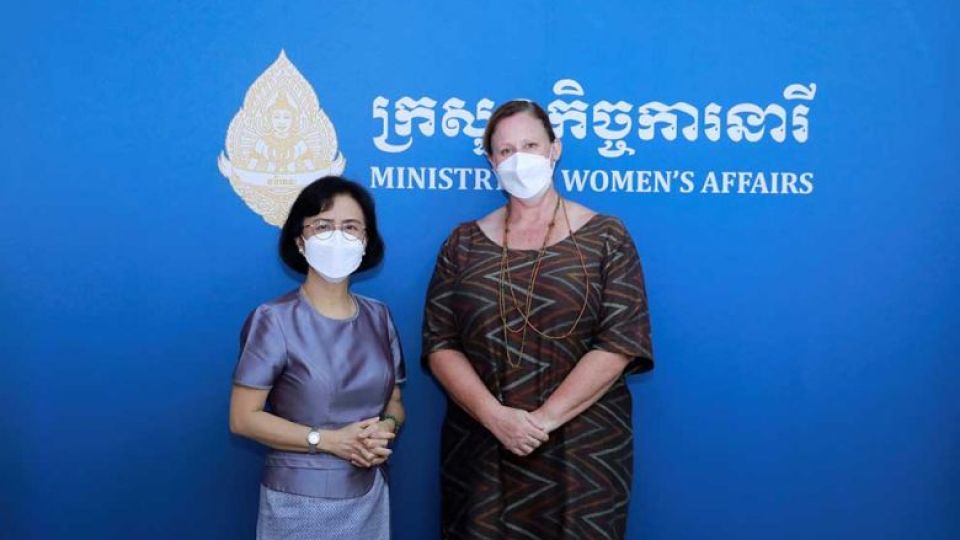April 21, 2022
Phnom Penh – The UN Food and Agriculture Organisation (FAO) in Cambodia has pledged to strengthen cooperation with the Ministry of Women’s Affairs to promote the equal presence of both men and women in the food and agriculture sector workforce.
The commitment was made during a meeting between women’s affairs minister Ing Kantha Phavi and new FAO representative to Cambodia Rebekah Bell on April 18 at the ministry in Phnom Penh.
According to the ministry, Bell had “praised and expressed pride” about previous cooperation between the organisation and the ministry.
“Bell committed to further strengthening this excellent partnership, which aims to continue assisting the Cambodian government, as well as the ministry, in increasing the equality of representation of men and women in the workforce and… improving family life,” it said in a Facebook post after the meeting.
The promotion of equal representation and the improvement of family life will be conducted through the training of family members, especially women, in matters including agricultural skills, nutrition, the use of digital technology and means to locate and sell products in markets.
After the meeting with Phavi, Bell also met with Dim Theng – deputy head of the Ministry of Commerce’s General Directorate of Consumer Protection, Competition and Fraud Repression (CCF) – on April 19 to discuss plans to set up a better “farm to table” food control system to ensure that consumables are of “good quality, safe and hygienic, in accordance with international standards”.
CCF said in a Facebook post that both parties discussed the National Food Management Assessment System, a strategic project by the EU to improve food safety in Cambodia.
Bell told The Post that FAO has supported the women’s affairs ministry in its quest to close the gender gap in agriculture by enhancing rural women’s socio-economic empowerment and strengthening women’s leadership roles in rural development, decision-making and resilience building.
“In regard to promoting women’s access to productive resources such as land, FAO has supported the women’s affairs ministry in strengthening its capacity to monitor and report the progress made towards the attainment of the Sustainable Development Goals, with a focus on the adoption and implementation of a legal framework, including customary law, that guarantees women’s equal rights to ownership and control over land,” she said.
Bell said that rural women play “crucial roles” in agriculture, engaging as producers, farm managers, processors, traders, wage workers and entrepreneurs. Despite their importance in the sector, they face greater challenges than men in accessing and controlling productive resources, services and opportunities, she said.
“Women often have a limited and marginalised voice in decision-making and participate in poorly paid jobs, lacking access to natural resources, and rural services. Furthermore, women often have limited time to invest in their businesses due to the work burden deriving from domestic work and social roles.
“Women require concrete assistance [including capacity to manage human resources and financial resources] in order to increase their technical knowledge of agriculture, entrepreneurial skills and business knowledge so that they can take on more entrepreneurial businesses and farm management opportunities,” she said.


